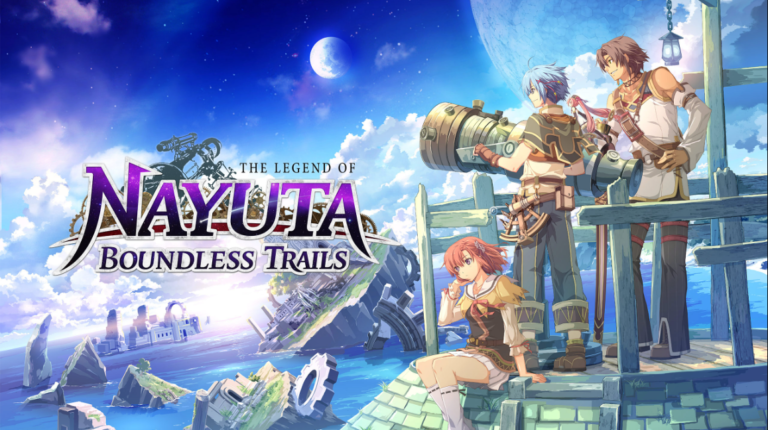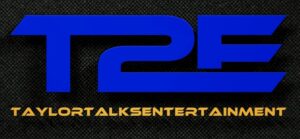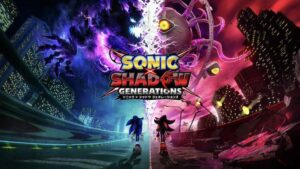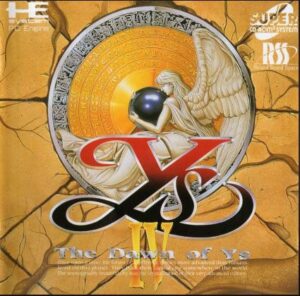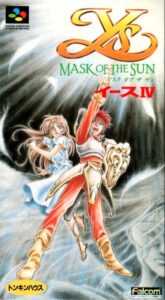Here we are once again covering another Falcom title. I honestly hadn’t planned on returning to a Falcom game until the recently released Ys X: Nordics, yet here we are. 2023 saw the localization of the long awaited Trails into Reverie as well as the localization announcement of Trails Through Daybreak or Kuro no Kiseki depending on your persuasion. Sandwiched between these two major announcements was the relatively quiet release of today’s focus, none other than The Legend of Nayuta: Boundless Trails. Before we dive into the heart of the matter, I need to extend my heartfelt thanks to the folks over at Nis America for sending me a review code and allowing me to speak to you about Nayuta. Let’s now dive into the one and only Legend of Nayuta!
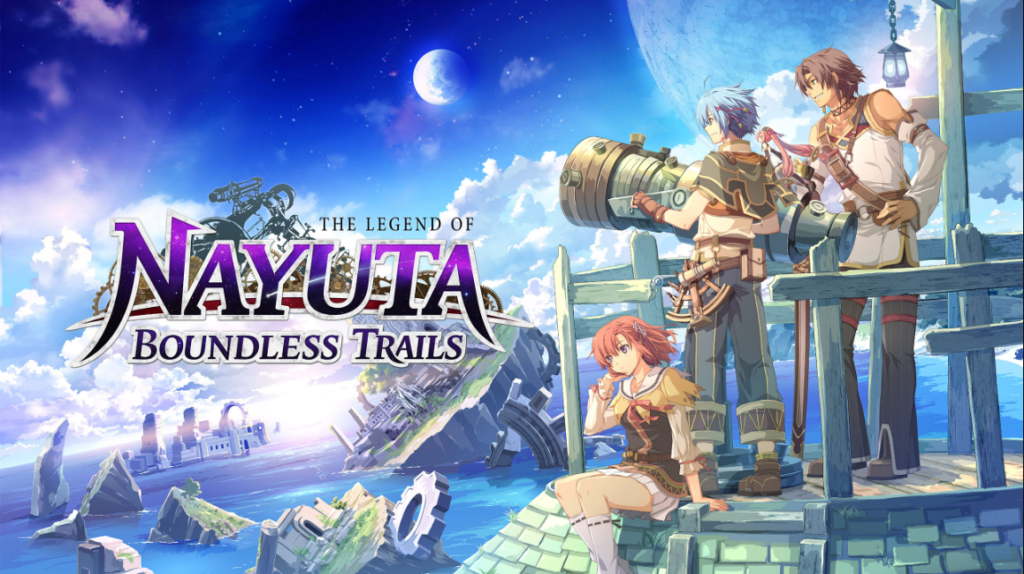
Introduction & Synopsis
Nayuta initially saw release in Japan in July 2012 for the PlayStation Portable under the name Nayuta no Kiseki and eventually saw additional releases for Windows PC, PlayStation 4, and Nintendo Switch with an English localization of said ports in September of this year. Nihon Falcom president Toshihiro Kondo served as producer for the title while the game was written by the likes of Syunsei Shikata, Yuuta Miyazaki, Aichiro Miyata and Katsuya Horimoto. The score was composed by longtime members of Falcom’s sound team: Hayato Sonoda, Takahiro Unisuga, and Saki Momiyama.
Before we dive into the synopsis I need to address the elephant in the room with Nayuta, which relates to its name and the expectations that come with it. I’ve talked at length about Legend of Heroes seriesmost commonly known as Trails or Kiseki in the modern eye on this site as one of Falcom’s most significant properties. In both the English and Japanese titles Nayuta seeks to attach the Trails/Kiseki name when it in fact has nothing to do with the series narratively, regardless of what our lore conspiracy theorists tell you. What we have is a spin off that while having nothing to do with its namesake still seeks to provide a novel experience. I will elaborate later on why Falcom decided to attach this name to this unrelated experimental game. Now, on to that synopsis!
Our story begins with one Nayuta Herschel, a young scholar and swordsman, returning from a long year of study on the mainland to his home of Remnant Isle for his summer vacation. Aside from recommencement of his local handyman business with his best friend Cygna it looks to be an uneventful summer… that is until the pair discover a portal to another world and set out on an adventure that is to defy imagination…
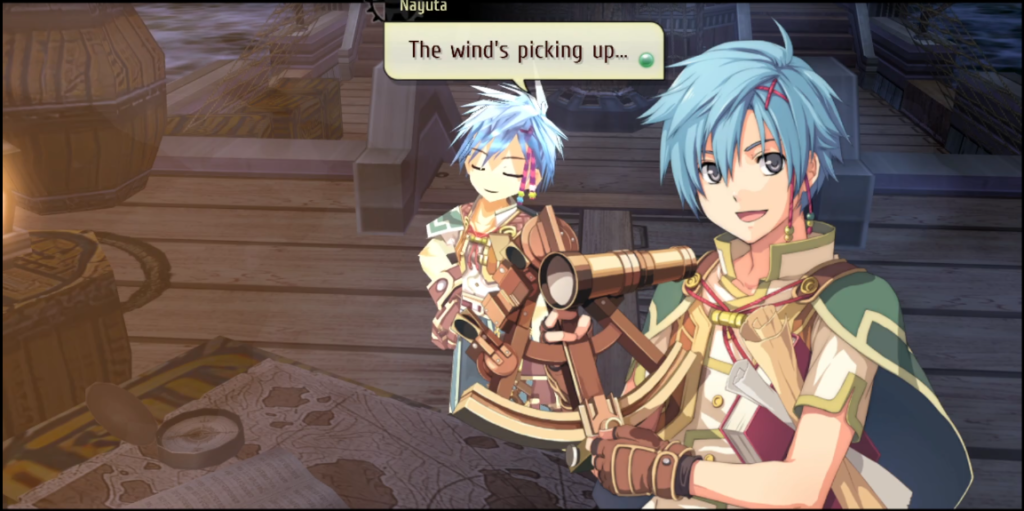
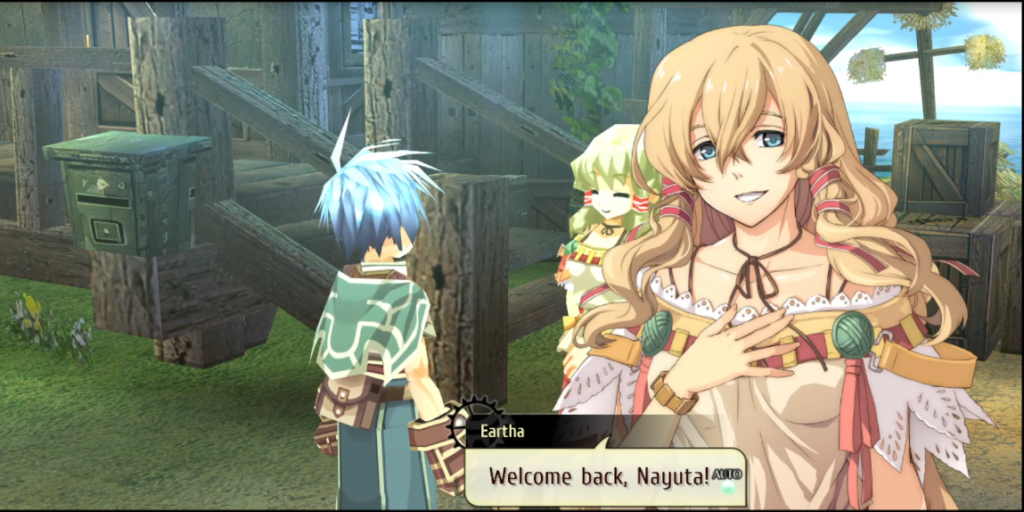
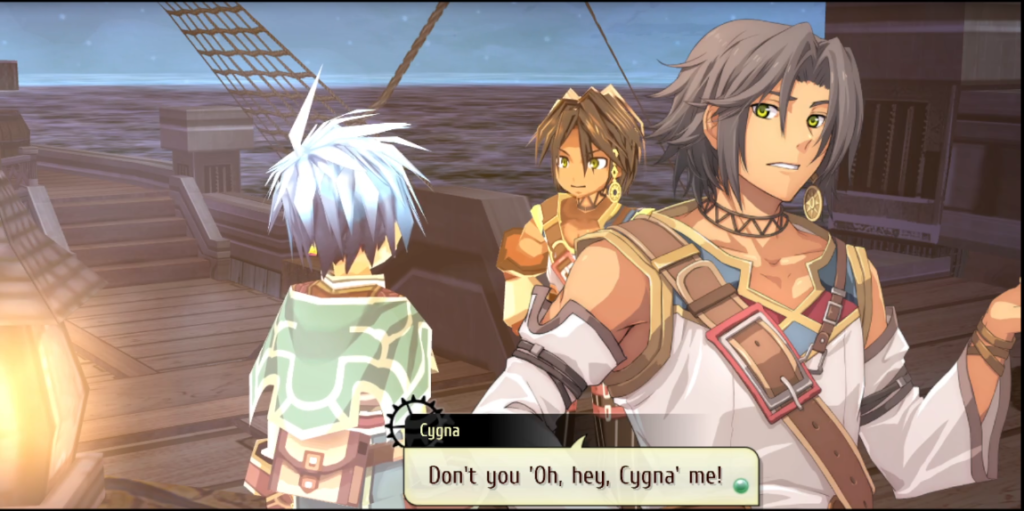
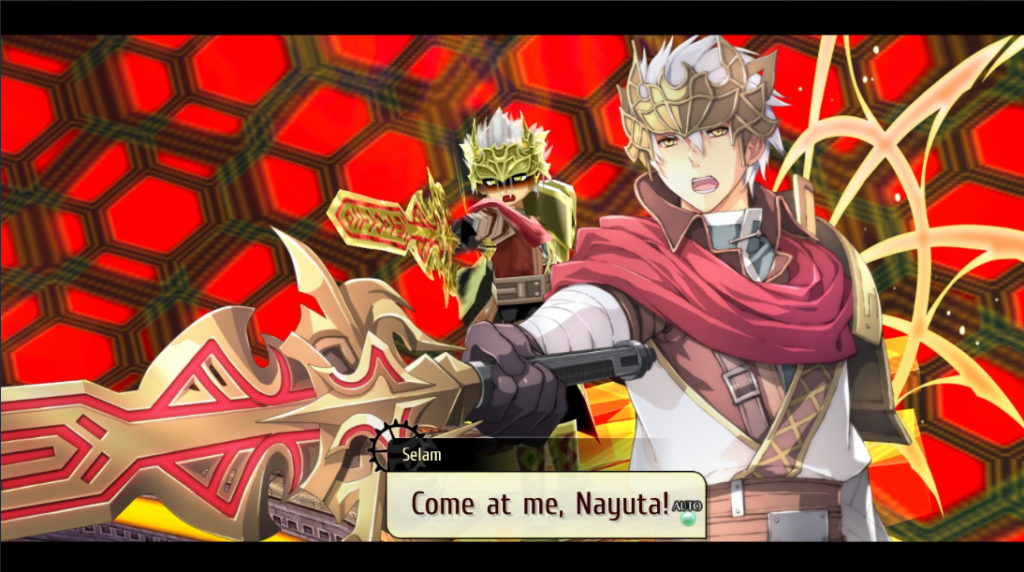
The story is rather simple in its setup but manages to deliver some meaningful and touching arcs despite its short runtime. Much like Legend of Heroes and modern Ys games the story is divided into chapters that naturally start out rather brief but grow increasingly complex and climatic. The core beats hit the emotional notes they’re supposed to, however Nayuta has a couple of revelations and narrative swerves that don’t entirely hit the mark as they are based in information the player wasn’t privy to and had no such buildup and as a result ring hollow. While I think some of these moments weren’t as influential as the writers wished them to be, I feel the broad strokes of the story hit the intended notes. That being said I find this story to be pretty well paced for the most part.
Gameplay
Now with the title providing certain expectations for players you might be surprised as to what the game delivers. For context the Legend of Heroes or Trails series has always been a turn based rpg experience if but a basic one. Nayuta while sharing a name with this franchise does something completely different. Instead of a turn based, party styled rpg we have a solo action rpg in which players will be progressing through increasingly challenging stages.
Nayuta takes almost nothing from the Legend of Heroes series, and starkly little from one of the action rpg pioneers Ys. What Nayuta takes inspiration from is the Falcom cult classics, the Zwei series. Both series place an extensive emphasis on progressing through stage based dungeons, featuring a physically well-equipped protagonist with upgradeable move sets and a magically adept partner, as well as a home base to resupply with equipment and curatives. And both series place an extreme emphasis on eating food to gain experience. In fact the only thing Nayuta lifts from it’s namesake is the inclusion of Trails style sidequests.
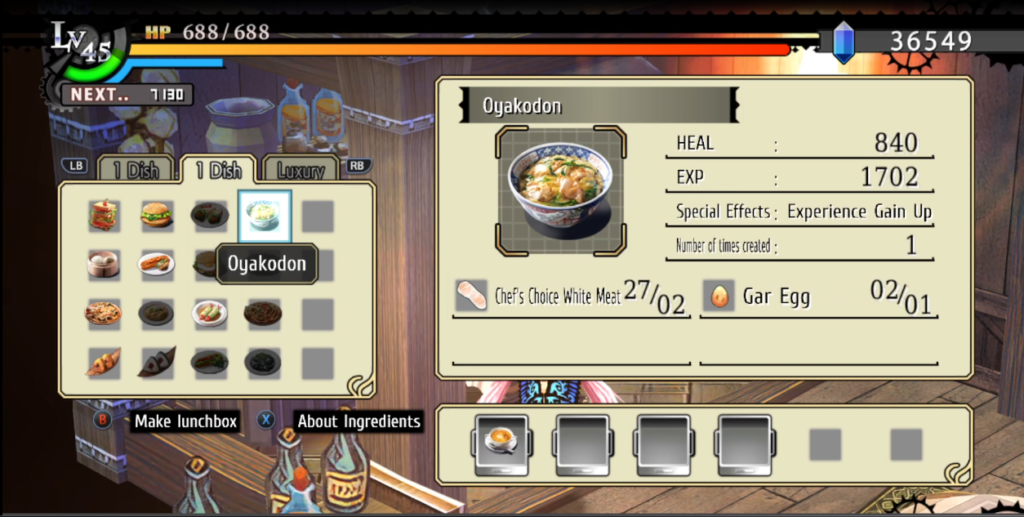
Naturally Nayuta builds upon the formula of the Zwei games, refining what worked and cutting what didn’t. For example, in the Zwei duology youcould only grow stronger and raise your level by eating food. Here in Nayuta you gain experience by defeating enemies as well as by eating food. The rating system for completion of stages was reworked to be less aggravating. It shifted from putting an emphasis on speedy completions without taking damage and hunting collectibles to exclusively being about collectibles and staging exclusive bonus missions that naturally vary by stage. High marks in stage completion will allow Nayuta to learn new skills from his master and obtain exclusive equipment.
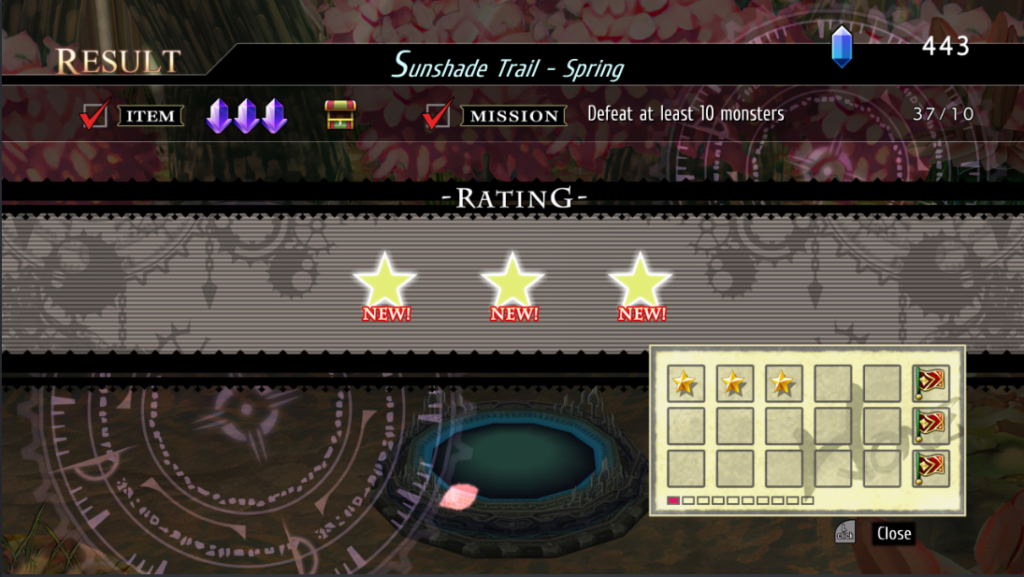
Now while Nayuta refines the Zwei experience and brings it to new heights, there is still some classic Falcom clunk, unfortunately. On a casual level I can enjoy what this gameplay offers, but what truly holds this game back from being great is the collision detection, which ironically was also a big part of the Zwei games. I have been repeatedly hit by enemy attacks through walls, from an attack I clearly dodged, and even from attacks clearly on different elevations. The guard mechanic promotes itself as being based on timing presses, but the timing actually doesn’t matter, and you press a button. I haven’t been hit by phantom attacks like this since Wanderers from Ys.
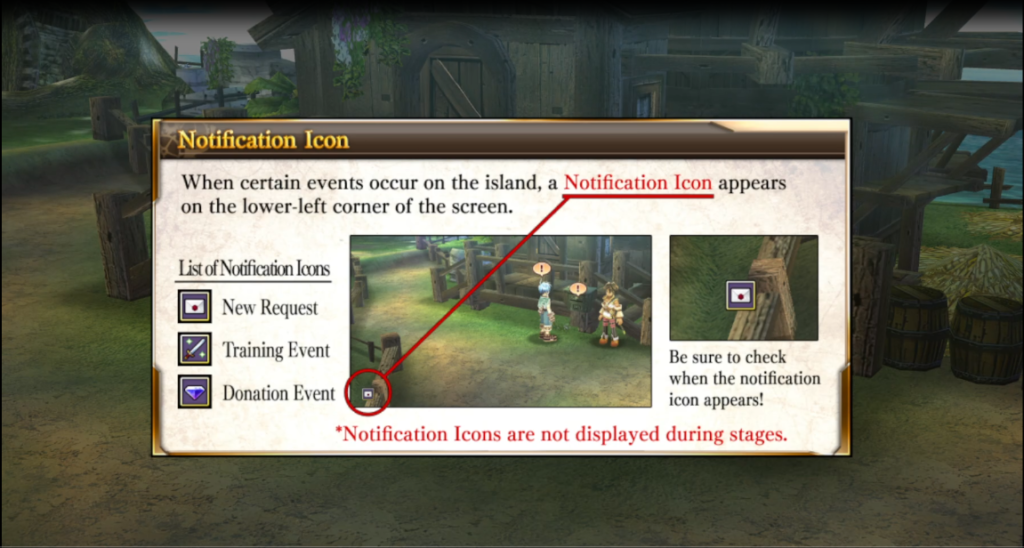
To counteract this and conclude our analysis of Nayuta’s gameplay I want to draw attention to the boss fights, again taking inspiration from Zwei. Each boss has a weak point that you need to assault in order to damage the boss. With the exception of one humanoid boss that was rather straightforward they largely play out like a puzzle that needs to be figured out. It makes every boss feel unique and requires a different approach and often requires you to make use of the abilities that Nayuta has acquired on his journey. These are easily the highlight of the whole game, with exception to the true final boss, which feels incredibly underwhelming compared to what came before.
Soundtrack & Presentation
Nayuta happily takes me back to 2012 in regard to the musical compositions of Falcom’s sound team as we have exquisite compositions from iconic mainstays such as Hayato Sonoda, Takihiro Unisuga, and the one and only Saki Momiyama. She would leave Falcom not long after the release of the first Sen no Kiseki title since she was also the composer and arranger for the likes of Ys Seven as well as Ys Memories of Celceta and her contributions on Nayuta are just as monumental as games prior.
The model work is on par with Falcom’s previous psp releases and features remarkably better running animations than the likes of Sen no Kiseki 1 & 2. Nayuta was also created and rendered in the Seven engine, which was also used in the eponymous Ys Seven, which set a new mechanical precedent for the franchise. Nayuta also benefits from the stylized art direction that the engine provides.
Naturally the international release was based off the Nayuta no Kiseki Kai. These included standard things to make the game more appealing visually, the usual 60fps support, touched up art, and additional character portraits. Development of the PC version was handled exclusively by PH3 headed by the famous Durante. Nayuta may take some getting used to in terms of control as the confirm button is defaulted to B/O on Xbox and PlayStation inputs as opposed to the standard X/A that you usually see.
Conclusion
The Legend of Nayuta is a natural evolution of the Zwei games whilst taking some light inspiration from Falcom’s other properties that have risen to prominence. That being said the Zwei games didn’t set the world on fire in terms of sales. In fact it was the nail in the coffin of Falcom ending their process of developing PC ports in-house. It is with that that I surmise they attached a much more popular name to this project in order to pump up sales. This was a deceptive marketing tactic that I’m willing to forgive as it gave the Zwei formula another chance to shine with a lot more eyes on it. And for that Falcom has my thanks. There may be no relation to the Legend of Heroes, but Nayuta represents a lost era for Falcom in which we saw a wealth of experimentation and original ideas that are unfortunately lost today. Nayuta is a creative game that I feel any curious Falcom fan can get some enjoyment from.

